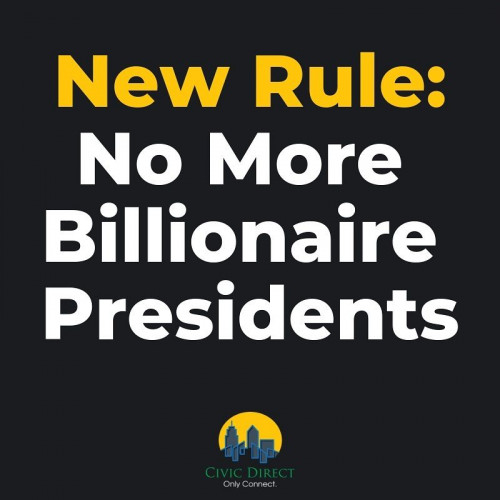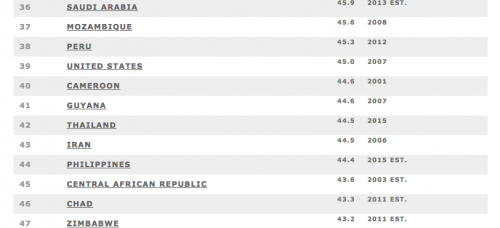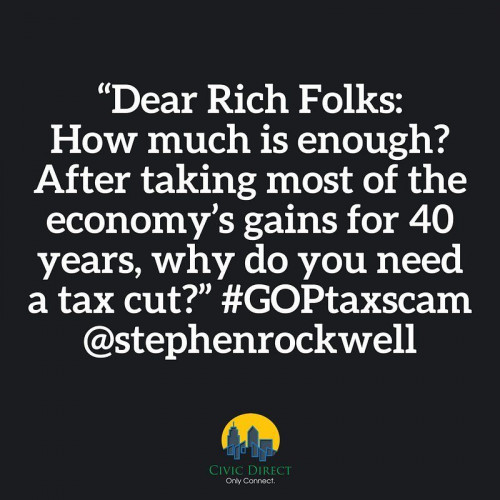Before "Banana Republic" was the overpriced brand from the Gap, it was a term referring to countries that experienced great economic inequality and generally unstable politics.
Such instability was often blamed on the inherent flaws of the country itself as opposed to the outside forces that undermined democracy for economic self-interest. In fact, American fruit corporations played a dominant role in the politics of smaller Latin American countries. The corporations owned much of the fertile land and exerted control over the country through the support of a few corrupt elite and the disruption of labor organizing.
These elite found themselves in positions of wealth at the cost of the impoverishment of their fellow citizens. Populist and labor uprisings against such gross inequality of wealth and power threatened this establishment order. In countries like Honduras and Guatemala, popular elected governments that attempted to build fairer systems were deposed with the help of these corporations. Often military governments were installed that would maintain and benefit from the inequality.
In the late 19th and early 20th century, this same American corporate power played a dominant role in American politics, until the labor movement and the Progressive Movement fought back against the extremes of unbridled and unregulated capitalism and the inequality it creates. The post WWII consensus grew out of this progressivism and New Deal politics that honored the role of labor and put tax policies in place that would ensure that a rising tide lifted all ships.
However, the greedy elites fought back starting with Nixon's southern strategy and Reagan's Democrats. Republicans used veiled racism to garner the support of white working class Americans, even as the economic policies pursued by Republicans did little to help and more often did serious destruction to the economics that support white working class livelihoods.
As a result, inequality skyrocketed over the last 40 years. Yet, the wealthy almost inexplicably want more. To what end could such stark inequality lead? The Trump era demonstrates that these wealthy elites will tolerate an incredible amount of indecency, and more overt forms racism and xenophobia to ensure that their ends are met.
Example A: What is the one significantly policy accomplishment of the Trump Era? A tax cut in which 83% of the benefits went to the very top few percent.
These tax cuts are the set up for the final step for Republican establishment: As we run trillion dollar deficits in good economic times, it is clear the the GOP was really full of it about their concern about deficits. We knew this of course because it was Ronald Reagan that first started punching gaping holes in the federal budget for tax cuts for rich people and increases in military spending.
The next step in this process is a complete gutting of the social safety net, a dream of Speak Paul Ryan. The midterm elections and the election of 2020 will help determine if this dream becomes a reality for Republicans.
We are close to Banana Republic status
The economy is completely out of any type of reasonable balance as we covered in our our list post on the topic. Such inequality and such corruption from economic elites means we will start seeing banana republic politics. Right wing, militaristic leaders arise to do the bidding of the elites. They often use racism, homophobia, or some other type of oppression to divert the attention of followers away from their own economic situation and towards feeling better because they are not a member of an oppressed class. Trump is a master of these politics and is much more overt in his attacks, but all Republican Presidents since Nixon have done so, even if perhaps in a more veiled manner.
The countervailing political force to such inequality and political corruptions becomes socialism. Socialist revolution in the Latin America is a major part of the political discourse with its most successful establishment in Cuba. In the US, the Progressive movement and later New Deal economics adopted a number of socialist positions and arguably saved American capitalism by rounding off many of the rough edges and worst abuses while taming elite greed through high taxes.
Today, it has been shocking and frankly underreported to see the growth of a legitimate socialist/democratic socialist movement in the two years since Trump was elected. After an election where no other Presidential candidate has ever gotten so close to the White House as a democratic socialist as Bernie Sanders, Democratic Socialists of America (DSA) has grown in leaps and bounds surpassing 50k members nationwide. This is part of the reason that Sanders is a front runner yet again for 2020. Furthermore, we have seen democratic socialists organize and push against establishment, often corporatist Democrats, most notably Alexandria Ocasio-Cortez's defeat of number 4 house Dem Joe Crowley.
In a world where the economic system continues to fail so many and give so many benefits to so few, we can expect these countervailing forces at opposite ends of the political spectrum to continue to pick up stream.
If Democrats are smart (a stretch, I know), they won't attempt to suppress these impulses, but rather re-adopt New Deal economics that can provide a large enough tent for working people of all stripes and an ideological spectrum that ranges from progressivism to socialism.
Universal health care, debt free college, smarter infrastructure, and real climate action are all uniting issues. If there are Democrats still not on board with any of these, they should understand how radically the ground is shifting. They will likely need to step aside given the political currents of our time.
This is the second in a series on Economic Inequality. Click here for the The first installment, Gross Inequality Spurring a True Left and a Racist Right.
#EconomicJustice #bananarepublic #wealthinequality #incomeinequality #inequality
We live in a new gilded age nearly half a century in the making. Reams of statistics and data visualizations demonstrate the gross and damaging inequality of our times. One nugget that I like to share is that in 1973, the average CEO made 37 times what the average worker made. CEO's now make 380-500 times what the average worker makes. We are not comparing CEO pay to the lowest paid worker, but to the average worker. The following video offers a more complete visualization of wealth inequality in the United States:
One More Measure on How Bad Inequality is...Yes It is Really Bad. The Gini coefficient is a number that economists use to determine the amount of inequality in an economy. Check out the company that the United States keeps:

We have a similar economic equality profile of places like Iran and Zimbabwe? Americans have largely not been honest with themselves. Instead we get caught up in the talk of the stock market or our Silicon Valley tech firms as a substitute for our national economic well being. At other times, we allow ourselves to be distracted by displays of a thin patriotism that speaks more to militarism as rather than our responsibilities to each other as citizens in forming a functioning democracy.
Why are we so Unequal?
The reasons for this inequality are extensive, but here are a few of the primary drivers:
- First and foremost, Tax policy- Tax policy is the primary driver of inequality in an advanced economy like the United States. The primary question for such economies is not is there enough, but rather how is the pie distributed to ensure that basic needs of families met, that governments can function well in providing basic services, and that conditions such as legal structures and an educated workforce available for entrepreneurship and business growth, especially small business growth.
- What is the top rate? During WWII and through the Eisenhower years the top marginal rate was above 90%. Reagan took that top rate from 70% to 50% in 1981 and down to 28% in 1986. Clinton eventually got the rate back up to 39.6% and that's where they were again when the Obama let the Bush tax cuts expire. The GOP Tax cuts brough the top rate to 37%. Of course, for top earners, the marginal income tax rate is rarely the effective rate paid as much of the income is earned through capital gains which has much lower rates. Wealthy people also can hire folks to work every loophole available.
- Why does it matter? The longest period of sustained economic growth in American history that lifted all ships was the post-war period from 1945 to 1973. When you top the tax rate fairly, government can make investments in infrastructure like the Interstate Highway System, in ensuring a social safety net of Medicare and Medicaid for people's health, and in education like building great public schools and sending folks to free or low cost college like the GI Bill. When top tax rates are low, you starve the ability of the government to act on basic needs and to serve as a balancing effect within the economy.
- The Attack and Decline of Organized Labor - In the 1950s, about a third of all Americans were in union jobs. A long-term, consistent attack against labor has whittled the unions ranks to around 10%. Those attacks came in the form of offshoring jobs, automation from technology, distributing work to the gig economy and direct confrontation through "Right to Work" policies that weaken the ability of workers to act collectively by creating free rider problems. In its Janus decision a few weeks ago,the Supreme Court launched an attack into the last stronghold of unions in the public sector.
- An Ethos that Greed is Good Over the Public Good Combined with Attacks on the Poor- Wealthy Presidential candidates like Trump and Romney prided themselves on paying little and perhaps no taxes. Think about this. One party nominates candidates who want to lead a government to which they have contributed little financially, even though they both clearly have the means to do so. Patriotism starts with paying your dues to ensure that the nation you want to lead can run. They are symptoms of a narrative that says greed is good, as we first heard in the Reagan years. The sustained attacks on the government by the Right ignore the preamble of the Constitution, that the government is us, WE THE PEOPLE.
- The Right has likewise attacked the poor as morally deficient as opposed to resource deficient. These attacks have buttressed the ethos of greed as working people are directed to attack a welfare recipient or an economic refugee immigrant as opposed to asking tough questions as to why they are working so hard and not getting ahead.
The Strains of Inequality are Showing
Friends, greed is not good. When greed is the driving value of government policy, bad things happen. Indeed, our economy has become so grossly unequal that the strains are showing in our politics across the spectrum. The Trump movement included a number of economically dislocated folks, many of whom have chosen racism over their own economic well-being. On the left, millenials and older Gen Xers are realizing that the economic cards are stacked against them and are looking for different solutions and ideologies than their parents. We'll get into these political consequences of gross inequality in my next post.
#EconomicJustice #Politics #RacialJustice #inequality #incomeinequality #wealthinequality
Dear #Rich Folks:
How much is #enough? After taking most of the economy’s gains for 40 years, why do you need a #taxcut? #GOPTaxScam #greed #inequality #incomeinequality #economicjustice #richgetricher #taxpolicy Stephen Rockwell
A Christmas Carol starring Donald "Scrooge" Trump. #presidentscrooge #repent #christmascarol #scrooge #notmypresident #christmas2016 #trump #incomeinequality #economicjustice






